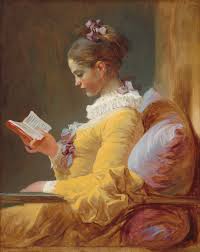
Wednesday
After many years of hearing about it, I have finally read Italo Calvino’s stimulating “Why Read the Classics,” published in The New York Review of Books in 1986. A number of his points are pertinent to this blog.
The Italian novelist and essayist provides many definitions of “classics” in the piece. He starts out by saying, “The classics are the books of which we usually hear people say: ‘I am rereading…’ and never ‘I am reading….'” That being said, sometimes we forget we have read them. That’s because the classics can work on us at such a deep level that they become
part of our inner mechanisms, but whose origins we have long forgotten. A literary work can succeed in making us forget it as such, but it leaves its seed in us.
This leads to another definition. Classics are
books that exert a peculiar influence, both when they refuse to be eradicated from the mind and when they conceal themselves in the folds of memory, camouflaging themselves as the collective or individual unconscious.
No only do they feel like they are part of the collective unconscious but they actually become part of the unconscious. Therefore, one never feels as though one is reading a classic for the first time, even if this is in fact the case. As Calvino puts it, “Every reading of a classic is in fact a rereading.”
Fleshing this idea out, he explains,
The classics are the books that come down to us bearing upon them the traces of readings previous to ours, and bringing in their wake the traces they themselves have left on the culture or cultures they have passed.
Calvino provides the following examples:
If I read the Odyssey I read Homer’s text, but I cannot forget all that the adventures of Ulysses have come to mean in the course of the centuries, and I cannot help wondering if these meanings were implicit in the text, or whether they are incrustations or distortions or expansions. When reading Kafka, I cannot avoid approving or rejecting the legitimacy of the adjective “Kafkaesque,” which one is likely to hear every quarter of an hour, applied indiscriminately.
This observation leads to two more definitions of a classic:
A classic does not necessarily teach us anything we did not know before. In a classic we sometimes discover something we have always known (or thought we knew), but without knowing that this author said it first, or at least is associated with it in a special way. And this, too, is a surprise that gives a lot of pleasure, such as we always gain from the discovery of an origin, a relationship, an affinity.
Along with feelings of familiarity, readers also experience unexpected pleasures:
The classics are books that we find all the more new, fresh, and unexpected upon reading, the more we thought we knew them from hearing them talked about.
Or put another way:
A classic is a book that has never finished saying what it has to say.
Later in the essay, Calvino makes a couple of observations that apply directly to this blog. The classics, he says, are not meant to take us out of contemporary world events but to help us situate ourselves within them:
The latest news may well be banal or mortifying, but it nonetheless remains a point at which to stand and look both backward and forward. To be able to read the classics you have to know “from where” you are reading them; otherwise both the book and the reader will be lost in a timeless cloud. This, then, is the reason why the greatest “yield” from reading the classics will be obtained by someone who knows how to alternate them with the proper dose of current affairs.
This leads to two further definitions. In the first, classics make contemporary events appear as “background noise,” even though this noise is our lives. In the second, the classics themselves are the background noise. They refuse to go away, even when all our attention in on more pressing concerns:
A classic is something that tends to relegate the concerns of the moment to the status of background noise, but at the same time this background noise is something we cannot do without.
And:
A classic is something that persists as a background noise even when the most incompatible momentary concerns are in control of the situation.
After saying that the classics should alternate with current affairs, however, Calvino then admits they seem incompatible:
There remains the fact that reading the classics appears to clash with our rhythm of life, which no longer affords long periods of time or the spaciousness of humanistic leisure. It also contradicts the eclecticism of our culture, which would never be capable of compiling a catalog of things classical such as would suit our needs.
This admission in turn leads him to speculate that perhaps the classics don’t serve any purpose at all, a conclusion that contradicts the very premise of Better Living through Beowulf. By the end, he is making a very modest argument for reading:
The only reason one can possibly adduce is that to read the classics is better than not to read the classics.
Needless to say, I think there are stronger reasons than this, some of which appear earlier in Calvino’s own article. But I appreciate how he doesn’t want to reduce the classics to utilitarian instruments. To this end, he cites an observation about Socrates by Rumanian philosopher and essayist Emil Cioran:
While they were preparing the hemlock, Socrates was learning a tune on the flute. “What good will it do you,” they asked, “to know this tune before you die?”
In other words, read the classics or engage in art because, useless though they may ultimately seem, they will enrich the present moment.
Of course, Socrates also famously instructed us to “know thyself.” The classics help us do this better than almost anything else.

